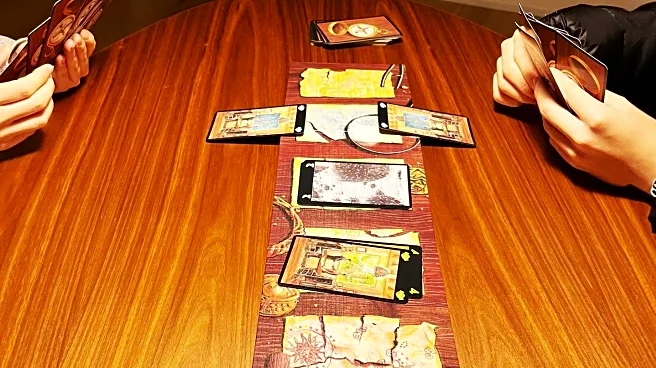What's Happening?
A recent article discusses the appeal of board and card games as gifts for adults, emphasizing their potential for entertainment and engagement. The piece highlights Hive, a game similar to chess, where
players aim to swarm their opponent's queen bee using various insect-themed pieces. The game is noted for its ease of learning and challenging mastery, with no setup required and infinite replayability. A promising review from a user named Starlily praises the game's quality and durability, noting the thick and sturdy tiles and lasting prints. The article suggests that these games are perfect for those looking to give thoughtful and engaging gifts.
Why It's Important?
Board and card games have seen a resurgence in popularity, particularly among adults seeking interactive and social activities. These games offer a break from digital entertainment, encouraging face-to-face interaction and strategic thinking. As gifts, they provide a unique opportunity to foster connections and create memorable experiences. The emphasis on quality and replayability makes them appealing choices for gift-givers looking for lasting value. This trend reflects a broader cultural shift towards valuing experiences and personal interactions over material possessions.
What's Next?
As the holiday season approaches, the demand for engaging and thoughtful gifts is likely to increase. Retailers may see a rise in sales of board and card games, prompting them to expand their offerings and marketing efforts. Consumers might explore new games and revisit classics, contributing to the growth of the tabletop gaming industry. Additionally, game developers could innovate by creating new games that cater to adult audiences, further diversifying the market.
Beyond the Headlines
The growing interest in board and card games among adults may have deeper implications for social dynamics and leisure activities. These games can serve as tools for stress relief and mental stimulation, offering a counterbalance to the fast-paced digital world. They also provide opportunities for skill development, such as strategic thinking and problem-solving. As more adults embrace these games, there could be a shift towards prioritizing quality time and shared experiences in social settings.










